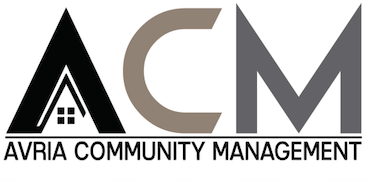Update to Florida’s Statutes: Chapter 720 and Chapter 718
Florida residents living in homeowners’ associations (HOAs) and condominium associations will need to pay close attention to legislative updates that will come into effect on July 1, 2024. The changes to Florida Statute Chapter 720, which governs HOAs, and Chapter 718, which pertains to condominium associations, could have significant impacts on the way these communities operate.

Enhanced Transparency in Operations
One of the primary changes in both chapters is a move towards greater transparency in the operations of associations. The amendments will require associations to make certain documents more readily available to members. This may introduce a more streamlined process for residents to request and receive records, ultimately promoting better governance and oversight.
Financial Management and Reporting
The updates also place a greater focus on financial management and reporting. Associations will be mandated to conduct more frequent and detailed financial audits. The objective of these audits is not only to maintain fiscal responsibility but also to ensure the financial stability of the community for the long-term benefit of its members.
Voting Procedures and Member Participation
Significant changes include modifications to the voting procedures. These changes aim to make the process more accessible and to encourage higher member engagement. The legislation will provide clearer guidelines on member participation rights and the use of technology in casting votes, potentially allowing for electronic voting methods that were not previously permitted.
Maintenance and Reserve Funds
For condominium associations, there is a shift in the requirements for maintenance and reserve funds. Under the new legislation, there will be stricter rules for how these funds are managed. By emphasizing a more proactive approach to maintenance and requiring adequate financial reserves, Chapter 718 seeks to minimize the risk of special assessments following unforeseen expenditures.
Dispute Resolution
Changes in both chapters also address the mechanism for resolving disputes within the community. The statutes may introduce alternatives to litigation. These may include mediation or arbitration, which could be less time-consuming and costly for all parties involved.
Implementation for Associations
Associations will need to comply with these changes by adjusting their governing documents and operational practices. It will be imperative for association boards and property managers to familiarize themselves with the amendments. When necessary, associations and mangers should seek legal advice to ensure compliance.
Conclusion
Residents, property managers, and HOA boards should mark their calendars for July 1, 2024. These significant legislative changes take effect impact HOAs and condos. It is recommended that all concerned parties review the amendments to Chapters 720 and 718 in detail. It is important to fully understand their rights, obligations, and the new protocols for association governance and operations. These statutes represent a positive step towards ensuring the long-term health and prosperity of Florida’s association-managed communities.
(Disclaimer: Please note that this article is for informational purposes only and does not constitute legal advice. For specific guidance related to the legislative updates, it is advised to consult with a legal professional well-versed in Florida Statutes Chapter 720 and Chapter 718.)







